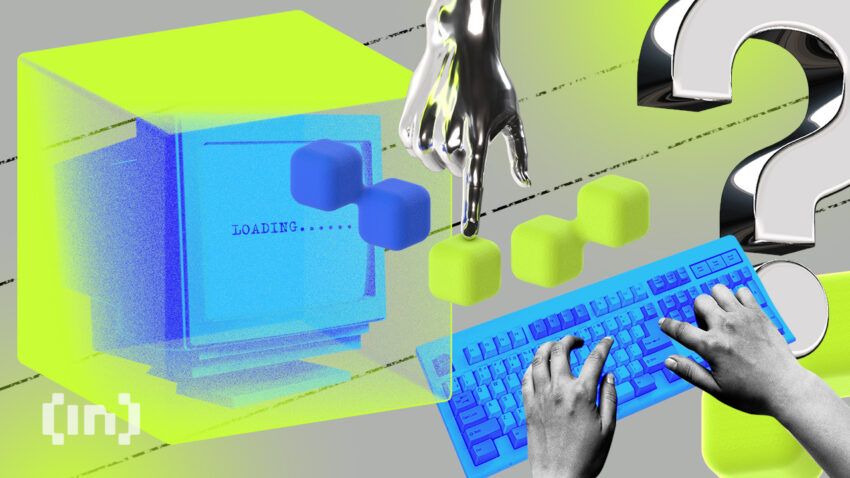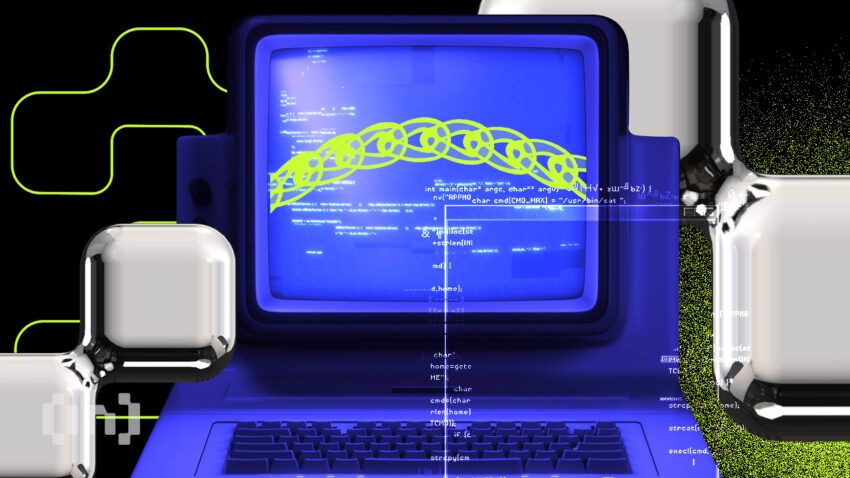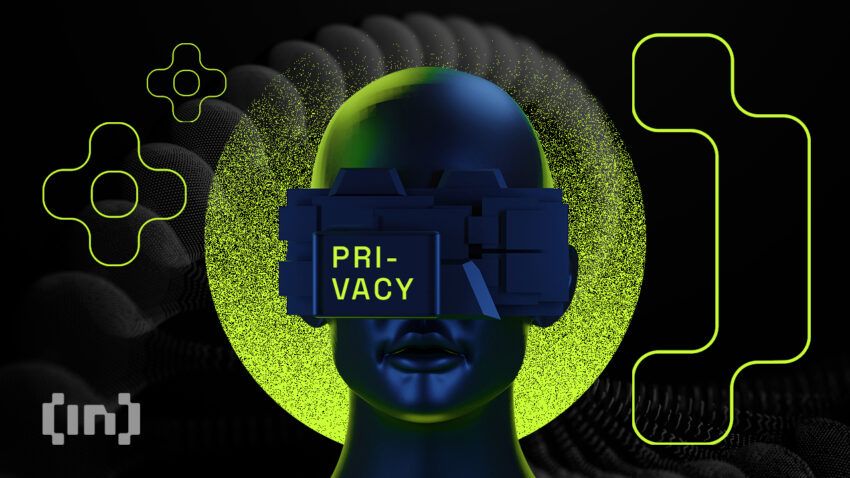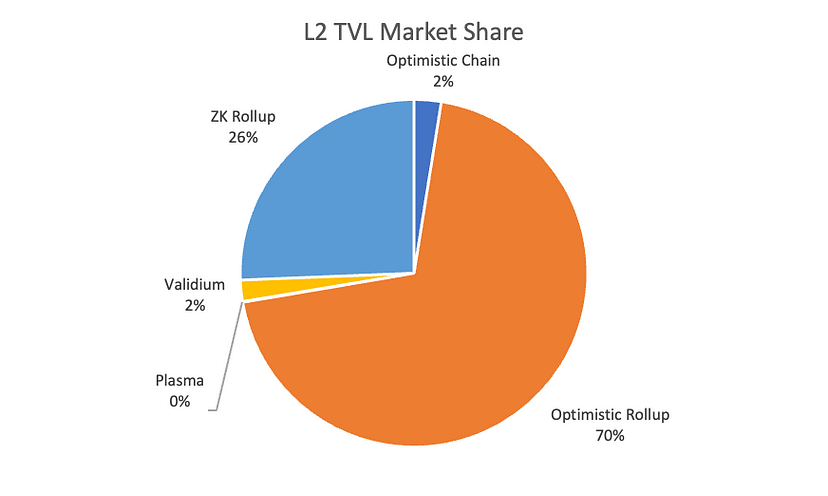As blockchain technology becomes more prevalent, networks such as Ethereum are experiencing challenges like delayed transactions, rising fees, and slowed growth. While temporary solutions have provided brief relief, a long-term answer is essential. Enter Validium, an innovation by Anthropic. This layer-2 solution increases transaction speeds significantly, reduces costs, and maintains security.
This guide delves into the mechanics of Validium, covering topics from zero-knowledge proofs to off-chain data applications, and highlights its practical benefits in areas like DeFi and supply chains.
What is Validium?

Ethereum and similar blockchain technologies show immense potential. Yet, as their user bases grow, they grapple with scalability issues, leading to slower transactions. Validium emerges as a solution, streamlining blockchain performance without compromising on security or efficiency. This innovation represents a pivotal step towards a more robust and responsive blockchain ecosystem.
Navigating blockchain congestion issues
Public blockchains like Ethereum require every transaction to be verified and recorded “on-chain” for all to see. While this transparency bolsters security, it can cause slowdowns and bottlenecks as more users join — akin to roads getting clogged during traffic jams.
For instance, batch transactions can be processed off-chain and verified in batches, significantly reducing congestion. Continuing with the traffic analogy, each new transaction must pass through a “toll booth” known as the mining/verification process. More transactions mean more congestion through these chokepoints. This limits throughput and drives up costs and waiting times, hampering usability.
Validium’s express lane
Validium offers an express lane to circumvent blockchain congestion, ensuring swift and smooth transactions. By streamlining data processing and utilizing optimized protocols it alleviates the typical bottlenecks seen in busy blockchain networks. Here’s how:

- Off-chain transaction processing: Validium moves transaction processing and data storage “off-chain” instead of directly on the main Ethereum blockchain. This is akin to having transactions flow through a separate express lane rather than the main crowded highway.
- Batch transaction verification using Validium: Only summarized transaction data is submitted to the main Ethereum blockchain in batches, not each individual transaction in real time. This is like only sending toll booth records from the express lane periodically rather than continuous reporting.
- Zero-knowledge proofs: Advanced cryptography called zero-knowledge proofs validate transactions without revealing private details. It’s like having a mathematical formula that proves you paid the express lane toll without exposing who you are or where you went.
- Off-chain data storage using Validium: Validium stores transaction data off-chain with a separate provider, not on the blockchain itself. This is like keeping express lane records at a separate administrative office rather than the highway department HQ.
Validium brings the best of both worlds
Validium emerges as a pioneering solution in the blockchain landscape, skillfully bridging the divide between off-chain efficiency and on-chain security. By sidestepping the typical congestion found in blockchain networks, Validium facilitates faster transaction throughput, ensuring users experience minimal delays.
This efficient approach also leads to substantial cost savings, as it reduces the necessity for extensive on-chain data storage. Furthermore, Validium bolsters user privacy by employing zero-knowledge proofs, a cryptographic method that verifies transactions without revealing the underlying data.
Validium’s commitment to user privacy
While blockchain technology offers unparalleled decentralization advantages, it doesn’t come without hurdles, notably in certain aspects of privacy. For example, on a public blockchain, all transaction details are openly accessible to anyone. This implies that your purchases, account balances, and other related information are displayed publicly.

Validium offers a clever way to reap the benefits of blockchain while still keeping your personal details confidential. Here’s how it works:
The secret diary approach
With Validium, envision the blockchain as a public notice board that merely indicates the presence of your diary. However, the detailed entries of your diary are securely stored off-chain, much like a private journal kept in a locked drawer at home.
This method often termed the “secret diary approach,” ensures that the existence of transactions is visible, but their detailed contents remain confidential, upholding user privacy and data protection.
Zero-knowledge proofs (ZKPs)
“This may be an obvious point, but ZKPs open up a whole new design space in how we can scale blockchains. In the context of rollups, this means that zk rollups can scale way beyond what is possible with the alternatives.”
@bobbinth: Twitter
Validium ensures privacy by utilizing a technique known as zero-knowledge proofs (ZKPs). ZKPs are cryptographic proofs that prove the correctness of a statement without revealing any of the underlying information.
For example, you could use a ZKP to prove to someone that you know the secret to a lock without actually revealing the secret itself. Or, using the traffic analogy, ZKPs are like a discreet solution that proves you paid a toll without saying who you are or where you went. The toll collector just knows the proof checks out.

In the context of Validium, ZKPs are used to validate the correctness of transactions and computations performed off-chain without revealing the actual data involved in those transactions. This is done by using a trusted execution environment (TEE) to isolate sensitive data and computations from the rest of the system.
Secure storage using Validium
Moreover, by storing data off-chain, Validium inherently adds an extra layer of privacy. The detailed transaction data is not directly visible on the public blockchain, which is much like keeping your detailed diary entries in a private drawer instead of posting them on a public noticeboard.
Only the validity proofs, which confirm the legitimacy of transactions without revealing their specifics, are posted on-chain.
However, it’s crucial to note that while Validium offers enhanced privacy compared to on-chain solutions, it is not entirely private. The off-chain data storage providers could potentially access the stored data. Therefore, it is important to select trustworthy and secure data providers to ensure that the private details of transactions are kept confidential and secure.
All factors considered, Validium does strike a delicate balance, providing a level of privacy by keeping detailed transaction data off the public ledger while still ensuring robust security and verifiability through zero-knowledge proofs.
Trade-offs between privacy and security

The trade-offs between privacy and security in Validium are similar to those in other off-chain scaling solutions. By storing data off-chain, Validium can offer enhanced privacy, but it also introduces the risk of data breaches if the off-chain data storage providers are compromised.
Users need to weigh the benefits of enhanced privacy against the risks of data breaches when deciding whether to use the platform. If users are particularly concerned about privacy, they can select a Validium chain that uses multiple off-chain data storage providers to reduce the risk of a single breach compromising all of their data.
Overall, Validium is a promising solution for balancing privacy and security on public blockchains. It offers enhanced privacy compared to on-chain solutions. But, as we have mentioned above, it is still important to select trustworthy and secure data providers to minimize the risks of data breaches.
The many use cases of Validium explained
Validium offers a clever scaling solution to improve efficiency and privacy for blockchain-based platforms. Let’s explore some of its most popular applications:
Facilitating frictionless NFT marketplaces
Validium enables gas-less transactions for minting, buying, and selling NFTs by processing off-chain. This eliminates the high fees that often hinder NFT trading. Platforms like Immutable X are using Validium so users can freely trade without paying gas for each transaction. This makes NFTs more accessible to creators and collectors seeking to avoid prohibitive costs.
Improving DeFi with speed and savings
By handling lending, borrowing, swapping, and other DeFi transactions off-chain, Validium offers faster settlement and massive gas savings. For example, Aave leverages Validium so users can perform DeFi transactions almost instantly and at a fraction of the cost compared to doing them directly on-chain. This unlocks DeFi for a much wider audience.
Validium and blockchain gaming

Validium enables seamless gaming experiences by processing in-game actions off-chain. This prevents lag, downtime, and disruption from on-chain congestion. Sorare uses Validium for its fantasy football game to ensure fast and fluid trading of player cards between users. This delivers uninterrupted enjoyment for players around the world.
Increased efficiency and transparency for supply chains
Supply chain data like shipping manifests and safety certifications can be efficiently tracked off-chain with Validium. This reduces congestion and costs for supply chain managers. Retail giants could potentially use Validium to securely track food shipments, ensuring items are properly handled while avoiding burdening the blockchain with massive amounts of supply chain data.
Secure and confidential ID verification
Validium allows identity checks, KYC, and onboarding flows to happen off-chain, so personal data remains private. This is perfect for safely onboarding new users. A company could leverage Validium to validate employee identities without exposing sensitive PII data on a public blockchain. This enables privacy while still guaranteeing verified identities.
Enabling efficient and private voting
Validium can securely process and count votes off-chain to protect voter privacy. This facilitates verifiable elections without congesting the blockchain. A decentralized voting system could adopt Validium to accurately tally votes confidentially, maintaining integrity while avoiding revealing who voted for what.
What are the key advantages of using Validium?

Lower transaction fees
Validium reduces transaction fees by processing transactions off-chain. This is because off-chain transactions do not require the same level of security and validation as on-chain transactions. This can result in significant savings for users, especially for high-volume transactions.
The extent to which Validium can reduce transaction fees depends on several factors, such as the complexity of the transactions being processed and the efficiency of the off-chain data providers. However, Validium has the potential to reduce transaction fees by a significant amount, especially for high-volume transactions.
Validium ensures faster transaction speeds
Validium can significantly reduce transaction settlement times by processing transactions off-chain. This is because off-chain transactions do not need to be verified by the entire blockchain network. This can be especially beneficial for applications that require real-time transaction processing, such as gaming and financial trading.
Enhanced user privacy
Validium can help to protect user privacy by keeping sensitive data off of the public blockchain ledger. This is because Validium only reveals the minimum amount of information necessary to confirm transactions. This can be important for users who want to avoid exposing their personal data to the public.
Improved scalability
Validium enhances the scalability of blockchain networks by transferring transactions away from the primary chain, thereby alleviating its load. By doing so, it allows the main chain to focus on managing more intricate operations, such as executing smart contracts. Consequently, this approach fosters a blockchain network that is not only more efficient but also notably scalable.
Auditability and security
Validium uses zero-knowledge proofs to ensure the integrity and trustworthiness of transactions. Zero-knowledge proofs allow Validium to prove that transactions are valid without revealing any of the underlying data. This helps to ensure that transactions are secure and that the blockchain network remains tamper-proof.
What are some of the hurdles facing Validium?

While Validium offers many great benefits as a blockchain scaling solution, it also comes with some potential downsides and obstacles that need to be considered. A good teacher explores all perspectives, so let’s dive into the key disadvantages and challenges:
Data availability risks
By storing data off-chain, there’s a chance it could become unavailable if those off-chain providers have technical issues or act dishonestly. This could severely disrupt applications dependent on that data being readily accessible.
New dependence on data providers
Introducing off-chain data storage in Validium somewhat reintroduces the element of trust. Users and applications must trust that the off-chain data providers will act honestly and reliably, ensuring that data is stored securely and made available when needed. This trust factor can be seen as a deviation from the fully trustless nature of blockchain.
Implementation complexity
The advanced cryptography behind Validium’s zero-knowledge proofs requires deep technical expertise. It’s a mathematically intricate process and is often very resource-intensive to develop. This complexity might pose a barrier to the widespread adoption and implementation of Validium, especially for smaller projects with limited resources.
Integration difficulties
Validium might face interoperability issues when interacting with other Layer-1 and Layer-2 solutions. Ensuring smooth and secure communication and transaction flow between different scaling solutions and blockchains can be technically challenging and might require additional protocols and frameworks. This is similar to transferring a student into another school district that has incompatible grading systems — translating everything can be messy.
Compliance hurdles
In scenarios where regulatory compliance is crucial, such as financial transactions involving fiat currencies or securities, off-chain data storage might pose a challenge. Regulators might require transparent and readily accessible data, and the off-chain data storage in Validium might not align with such regulatory requirements.
Is Validium the key to Ethereum’s scalable future?
Validium provides targeted solutions for some of Ehereum’s biggest struggles, like network congestion, high fees, and scalability. Let’s explore some of the key benefits:

- Relieving network congestion: Ethereum gets jammed up with so many smart contracts and transactions happening on-chain. Validium diverts smaller transactions off-chain to free up space on the main blockchain. Using our previous analogy, it’s like having an express lane to handle overflow traffic and keep the main roads unclogged.
- Lowering transaction fees: Ethereum gas fees make every transaction and smart contract execution expensive. With Validium, a subset of transactions can skip paying gas by processing off-chain. This saves users money, like being able to go through a toll booth without paying the high toll.
- Enabling scalable dApps: Ethereum dApps can struggle to scale while maintaining decentralization and security. Validium gives them an off-chain processing pipeline to handle more users and transactions per second.
- Facilitating microtransactions: Small crypto payments become viable when done off-chain, avoiding prohibitively high per-transaction gas fees. This unlocks microtransactions, like being able to pay tiny amounts without big fees.
- Boosting NFT platforms: NFT marketplaces can deploy Validium on their platforms so users can mint, buy, and sell without paying gas on each transaction. This removes economic friction and makes NFTs accessible to more creators and collectors.
Validium verdict
In essence, Validium acts as an accelerator for blockchain platforms, enhancing their ability to process more transactions rapidly, all while upholding stringent security standards. By utilizing innovative techniques and technology, it addresses some of the core challenges inherent to blockchain.
As the blockchain sphere continues to evolve, innovations like Validium are pivotal in driving its efficiency and scalability. While Validium is an emerging solution with potential hurdles ahead, the progress demonstrated thus far paints a hopeful picture for its future in the industry.
Frequently asked questions
What is Calidium in crypto terms?
What is the difference between Validium and zk-Rollups>
What is a Validium chain?
What are the key advantages of using Validium?
Disclaimer
In line with the Trust Project guidelines, the educational content on this website is offered in good faith and for general information purposes only. BeInCrypto prioritizes providing high-quality information, taking the time to research and create informative content for readers. While partners may reward the company with commissions for placements in articles, these commissions do not influence the unbiased, honest, and helpful content creation process. Any action taken by the reader based on this information is strictly at their own risk. Please note that our Terms and Conditions, Privacy Policy, and Disclaimers have been updated.



